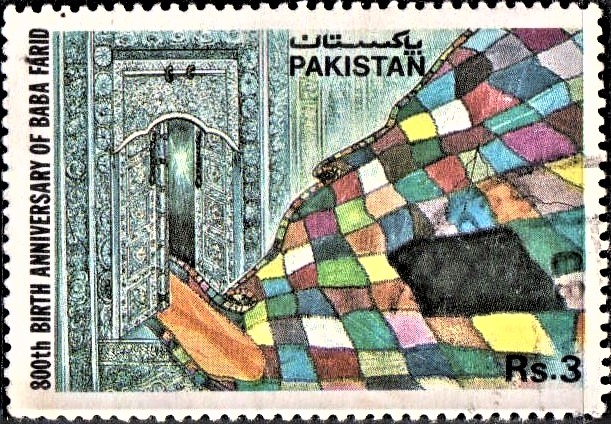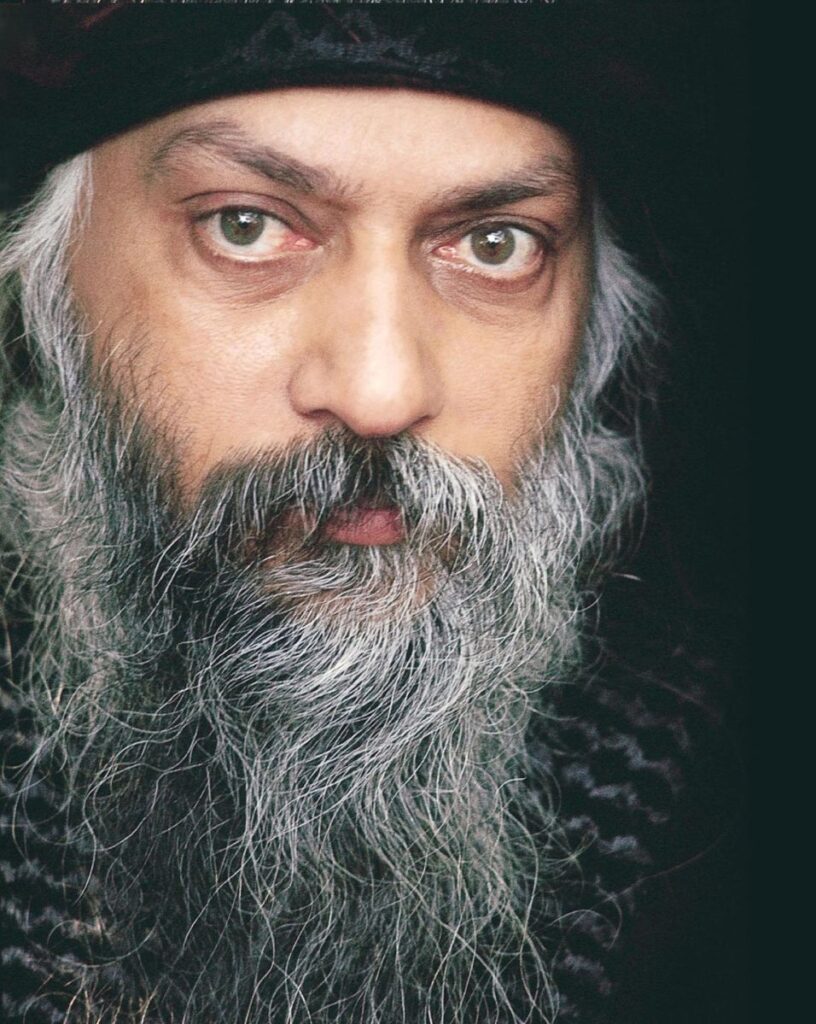
There is a very famous story about another mystic, a contemporary of Kabir, Sheikh Farid.
Farid was going to the river to take his bath. A young man asked him, “Can you tell me how to find God?”
Farid looked at the young man with very penetrating eyes, and he looked for a long time, and the young man started feeling frightened. And then Farid said, “You come along with me to the river. First take a bath, and if I get an opportunity I will answer it while we are taking the bath, or if not then later on.”
The young man was puzzled: “What does he mean? I have asked a simple question – how to find God? – and he is talking in puzzles. Bathing in the river, if he gets the opportunity he will answer. Why can’t he answer right now?”
But knowing that the ways of the mystics are mysterious, strange, and the man looked very magnetic, and the way he had looked into his eyes… he felt like going with him. He was a little afraid, scared, but still the attraction was so much that he followed. He said, “Let us take the risk – what can he do?”
They both went into the river, and when the young man dived into the river Farid caught hold of him under the water and wouldn’t allow him to come out of the water; he forced his head deeper and deeper. Farid was a strong man and the young man must not have been very strong, because strong people don’t ask such questions, such philosophical questions: How to find God? What is God? These enquiries are philosophical; fragile people ask them. Really strong people start the journey rather than asking here and there; rather than becoming philosophical, they become religious.
The young man was dying, but when you are dying, suddenly a great energy arises in you. When it is such a risk, you cannot afford to be half-hearted. His whole energy became available to him, which had never before been available.
You know only the first layer of your energy, which is very ordinary; it is enough for day-to-day work, then it’s exhausted. You need sleep to become refreshed again. The second layer is the emergency layer; it arises only when you are in an emergency. For example, if somebody is with a bayonet, or a lion is following you in the forest, then you will run! No Olympic runner can compete with you – and you don’t know how to run but it will come, it will happen. When life is in danger the second layer is available. And when life is really in danger, totally in danger, absolutely in danger…
And so was the case with the young man. Farid was a strong man and he was not leaving him, he was forcing him down and down. The third layer became available; the third layer is inexhaustible. The third layer is already joined with existence, it is rooted in existence.
Farid felt – when the first layer was exhausted he felt the young man was becoming stronger. Suddenly there was a great strength; it was difficult even for Farid to keep him down. And soon Farid became aware that now the third layer had become available. And the young man threw Farid as if Farid were just a toy. He came out, was very angry, obviously, and he said, “Are you mad or something? I had asked a religious question and you were going to kill me! Are you a murderer? And people think that you are a great sage!”
Farid said, “We can discuss these things later on. Right now, lest you forget, let me ask the question: what happened when I went on forcing you down and down into the water?”
He said, “What happened?”
Farid asked, “Were there many thoughts in your head?”
He said, “Many thoughts? There was only one thought – how to get out!”
“Was it a thought or was it a feeling?” Farid asked.
And he said, “It was a feeling, you are right, it was not a thought. I was not verbalising it; it was not in my head, it was in my heart. It was just a feel – now I am verbalising it.”
“And how long did it stay?”
And the young man said, “You are again right. A moment came when that too disappeared: there was no thought, no feeling. But something was happening, I don’t know what, from where. I was not doing it, it was happening – a great uprush of energy from some unknown source. Now I can look backwards, I can formulate it, but at that very moment I was conscious, absolutely conscious. I have never been so conscious, because I have never been in such danger before. I was alert, absolutely alert, but still there was no thought, no feeling, not even a desire to save myself. In fact there was no me. I had disappeared, but something was happening beyond me, something transcendental.”
Farid said, “Now you know the answer – this is the way to find God. When you are not, the transcendental descends in you. Now you can go. Never ask anybody again, you know the key: let God become such a problem, such a quest, as if your life is at stake.”
Osho in The Guest: Talks on Kabir
Image courtesy: iStampGallery

Acharya Rajneesh (1931-1990), known later as Osho, was an Indian godman, philosopher, mystic and founder of the Rajneesh movement. He was viewed as a controversial religious leader during his life. He rejected institutional religions, insisting that spiritual experience could not be organised into any one system of religious dogma. He advocated meditation and taught a unique form called dynamic meditation. Rejecting traditional ascetic practices, he asked his followers to live fully in the world but without attachment to it. Pic courtesy: https://www.sannyas.wiki/
